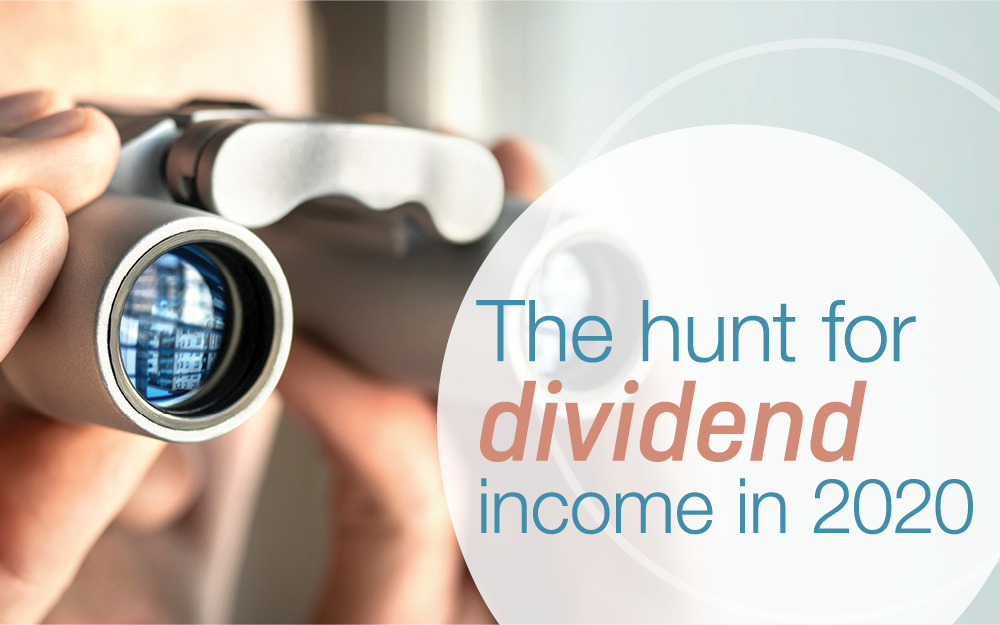 With interest rates at historic lows and likely to stay that way for some time, retirees and other investors who depend on income from their investments are on the lookout for a decent yield.
With interest rates at historic lows and likely to stay that way for some time, retirees and other investors who depend on income from their investments are on the lookout for a decent yield.
Income from all the usual sources, such as term deposits and other fixed interest investments, have slowed to trickle. Which is why many investors are turning to Australian shares for their reliable dividend income and relatively high dividend yields.
The average dividend yield on Australian shares was 5% in 2019 and more than that for many popular stocks.
By comparison, returns from traditional income investments are failing to keep pace with Australia’s low inflation rate of 1.7%. Interest rates on term deposit from the big four banks are generally below 1.4%i, while the yield on Australian Government 10-year bonds is around 1.2%ii.
But with shares entailing more risk than term deposits or bonds, is a dividend income strategy safe?
Dividends provide stability
When comparing investments, it’s important to look at total returns. The total return from shares comes from a combination of capital gains (from share price growth) and dividend income. While market commentary tends to focus on short-term price fluctuations driven largely by investor sentiment, dividend income is remarkably stable.
Over the past 20 years, dividend income has added around 4% on average to the total return from Australian shares.
For example, in 2019 the All Ords Index (which measures the share price gains or losses of Australia’s top 500 listed companies) rose 19.1%. When dividends were added, the total return was 24.1%.
So how are dividend yields calculated?
Calculating dividend yields
To work out the dividend yield on a company’s shares you divide the latest annual dividend payments by the current share price.
Take the example of BHP Billiton. Its shares were trading at $37.41 in December after paying annual dividends of $1.9178, providing a dividend yield of 5.13% ($1.9178 divided by $37.41). When you add franking credits, the ‘grossed up’ dividend yield is 7.32%.iii
Franking credits are a type of tax credit compensating shareholders for tax the company has already paid. Companies such as BHP with fully franked shares will have franking credits equal to 30% of the gross dividend value. This is not a recommendation for BHP, simply an illustration of how dividend yields are calculated.
But a big dividend yield is not always better. A high dividend yield may signal a company with limited growth prospects, a falling share price, or both. Sometimes it’s the result of a one-off special dividend.
So how can you spot a quality dividend?
Quality counts
Investors looking for a reliable income stream need to focus on companies with quality assets and strong management teams, good growth prospects and sustainable earnings. This is what will determine the future growth in dividends and/or the share price.
In the current low interest rate, low economic growth and low inflation environment, many companies have taken a cautious approach and rewarded shareholders with higher dividends. As growth picks up, companies may allocate a greater share of profits to growing their business.
Relying too heavily on dividends from Australian shares could also expose you to risk or mean missing out on opportunities elsewhere.
Consider the big picture
When hunting for a good dividend yield, it’s important to follow fundamental investment principles. That means holding shares from a variety of market sectors, with good prospects for growth and income.
Diversification is also important across asset classes. The total return from Australian residential investment property was 6.3% in 2019 (from a combination of price movements and rental yields), but in other years the performance of shares and property could be reversed.iv
And despite their lowly returns, holding term deposits with different maturity dates allows you to manage your cash flow. It also helps avoid having to sell your shares and crystallise losses in a market downturn.
If you would like to discuss your income needs within the context of your overall investment portfolio, give us a call.
i https://www.canstar.com.au/term-deposits/highest-term-deposit-rates/
ii https://tradingeconomics.com/bonds
iii https://www.marketindex.com.au/analysis/dividend-yield-scan-6-december-2019